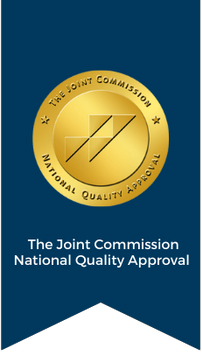Table of Contents
If you or a loved one is struggling with addiction, the first step towards recovery is often detoxification. Detox is the process of removing harmful substances from the body and managing withdrawal symptoms that occur when a person stops using drugs or alcohol. While detox is not a treatment for addiction, it is an essential first step in the recovery process. In this article, we’ll discuss the importance of detox and answer the question, “Do I need detox?”
What is Detox?
Detox is the first stage in addiction treatment that aims to cleanse the body of all harmful substances. During detox, the body goes through a series of physical and mental changes as it adapts to the absence of drugs or alcohol. The process can be challenging and uncomfortable, but it is necessary to overcome addiction and achieve long-term sobriety.
What are the Symptoms of Withdrawal?
Withdrawal symptoms can vary depending on the substance being used, the length of time a person has been using, and the amount of the substance consumed. Common withdrawal symptoms include nausea, vomiting, sweating, shaking, anxiety, insomnia, and depression. In some cases, withdrawal symptoms can be severe and life-threatening, which is why it is important to undergo detox under medical supervision.
Why is Detox Important?
Detox is essential for individuals who are physically dependent on drugs or alcohol. It helps to manage withdrawal symptoms and reduce the risk of complications that can arise from sudden cessation of substance use. Detox also prepares individuals for addiction treatment by clearing their minds and bodies of harmful substances, making it easier for them to engage in therapy and counseling.
Who Needs Detox?
Not everyone who struggles with addiction needs detox. Individuals who have been using drugs or alcohol for a short period or who have not developed physical dependence may not require detox. However, those who have been using drugs or alcohol for an extended period or who experience withdrawal symptoms when they stop using should undergo detox.
How Long Does Detox Last?
The length of detox can vary depending on the substance being used, the severity of addiction, and other factors. Generally, detox can last from a few days to a few weeks. However, some individuals may require longer detoxification periods.
What Happens After Detox?
After detox, individuals should enter addiction treatment programs to address the underlying causes of addiction and develop coping mechanisms for long-term sobriety. Detox alone is not enough to overcome addiction, but it is an important first step towards recovery.
How is Detox Performed?
Detox can be performed in a variety of settings, including hospitals, clinics, and residential treatment centers. Medical professionals may use medications to manage withdrawal symptoms and monitor patients’ vital signs. Counseling and therapy may also be provided to help individuals cope with the psychological effects of detox.
Can Detox be Dangerous?
Detox can be dangerous, especially when done without medical supervision. Individuals may experience severe withdrawal symptoms that require medical attention, and complications such as seizures, heart attacks, and strokes can occur. This is why it is important to undergo detox under the care of medical professionals.
Detox is an essential first step in addiction treatment that helps to manage withdrawal symptoms and prepare individuals for long-term recovery. While not everyone who struggles with addiction needs detox, it is crucial for those who are physically dependent on drugs or alcohol. If you or a loved one is struggling with addiction, seek help from a reputable treatment center that provides detox and addiction treatment programs.


